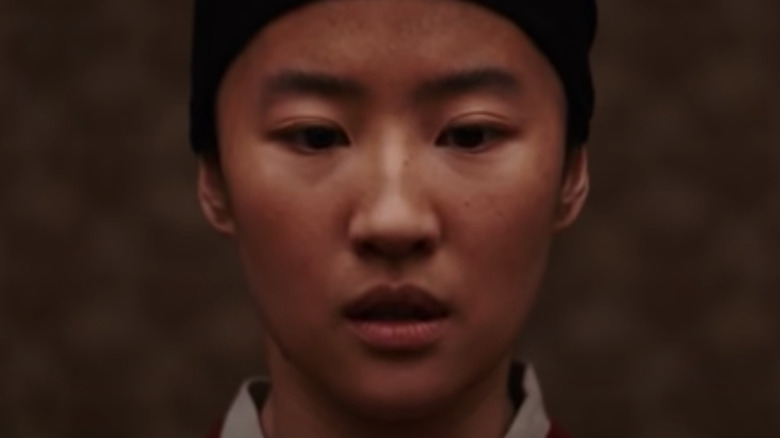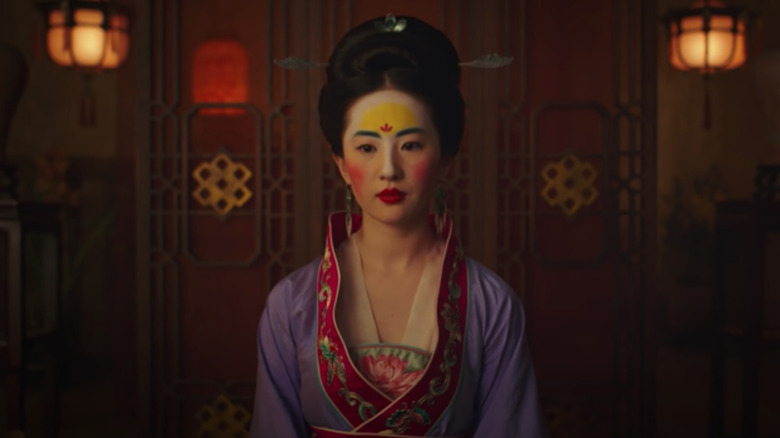The Live-Action Mulan Controversy Disney Probably Doesn't Want You To Remember
When "Mulan" premiered in 1998, it was a welcome addition to Disney's impeccable '90s lineup. The film looks at the dark Chinese folktale through an animated, family-friendly lens, inserting a love story and an impish sidekick in the same vein as Robin Williams' Genie from "Aladdin." "Mulan" did well among Western audiences, earning $23 million in its opening weekend and out-grossing the two previous Disney outings "Hercules" and "The Hunchback of Notre Dame" (via CNN).
Among the deluge of live-action Disney adaptations in the 2010s, "Mulan" — with all its high-octane action and choreographed training montages — was understandably a prime contender. After languishing in development hell for several years, then facing COVID-related delays, the adaptation was finally released in 2020 to generally positive reviews from critics.
"Mulan" struggled to finally come to fruition, and it was marred by controversy along the way. Here's what Disney probably doesn't want you to remember.
There were calls for a boycott of Mulan
Conceived as a much-needed adaptation of a beloved, feminist Disney property, "Mulan" quickly became a cause célèbre for the media giant. In the lead-up to its release in 2019, star Liu Yifei spoke out in support of the Hong Kong police after they had brutalized pro-democracy protesters in the wake of a highly controversial extradition bill. The Chinese-American actress took to the social media site Weibo to write, "I support the Hong Kong police. You can all attack me now. What a shame for Hong Kong" (via BBC). The statement incited a #BoycottMulan movement on Twitter.
Liu's controversial remarks weren't the only headache for Disney. Upon the film's release in 2020, some viewers noticed that Disney thanked Xinjiang authorities in the credits — the territory where roughly 2 million Uighur Muslims have been forced into concentration camps (via The Guardian). While Disney asserts that the majority of "Mulan" was filmed in New Zealand, some portions were filmed in Xinjiang, horrifying human rights activists. "Why we should #BoycottMulan? It's about hypocrisy," tweeted Hong Kong activist Nathan Law. "In Hollywood movies, they claim to embrace social justice. In fact, they kowtow to autocratic China disgracefully."

